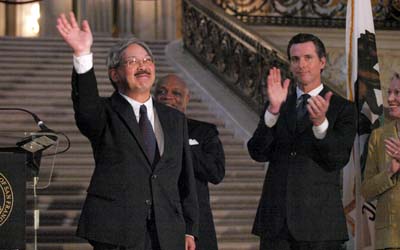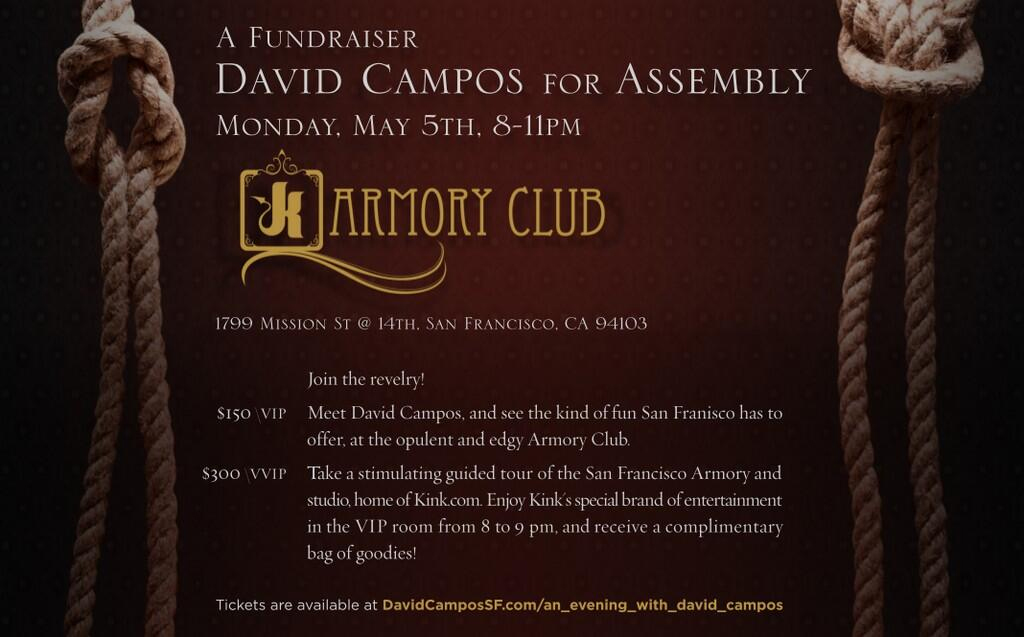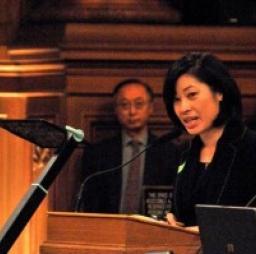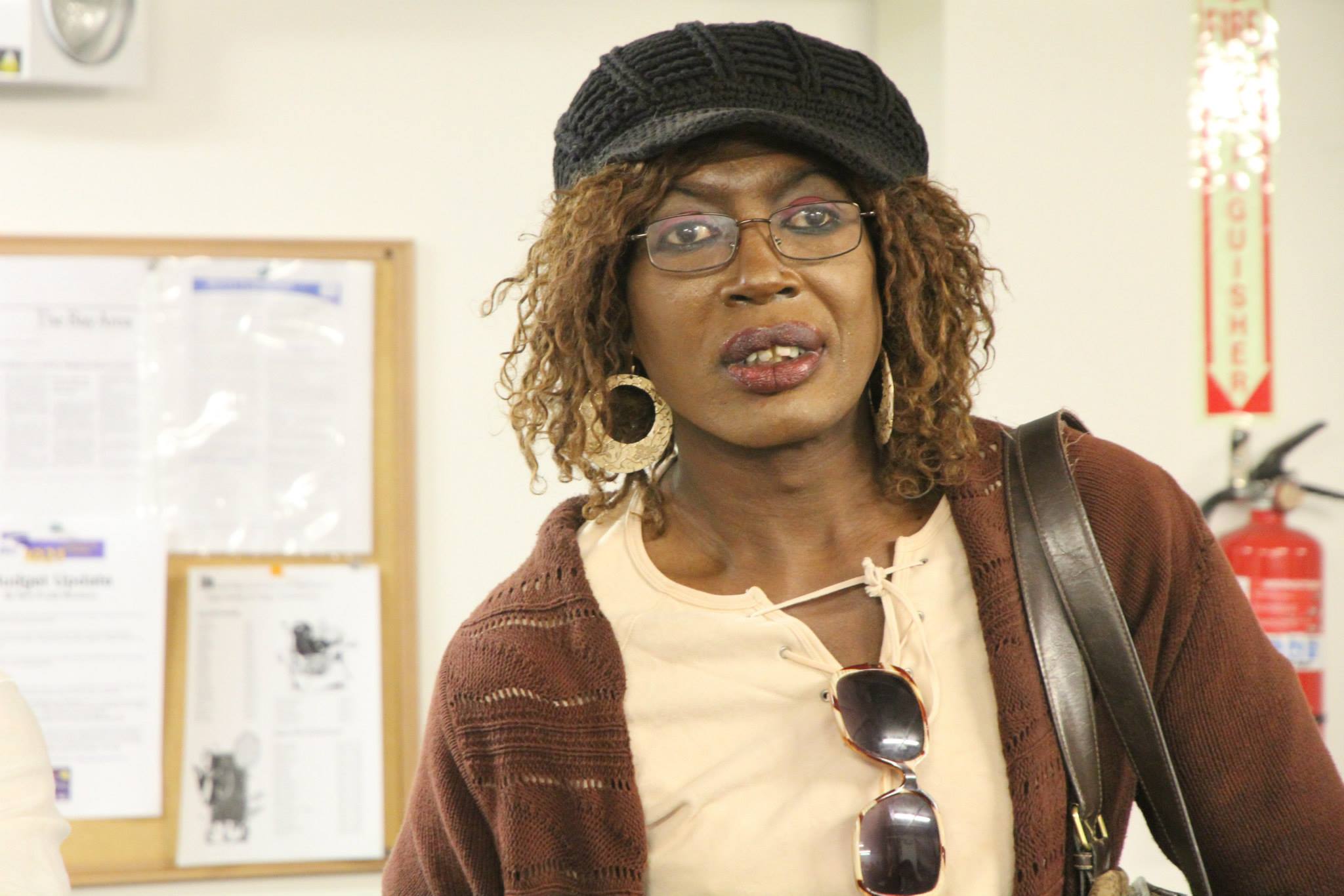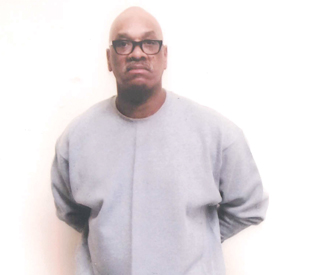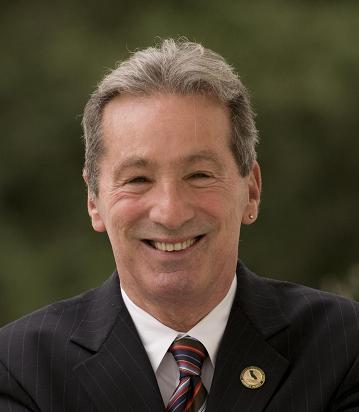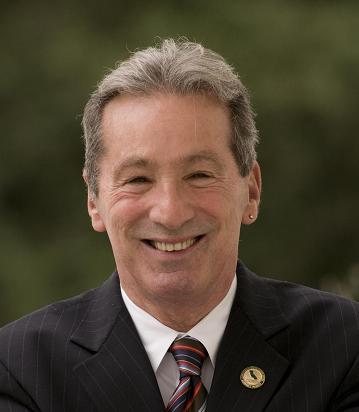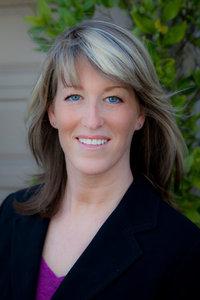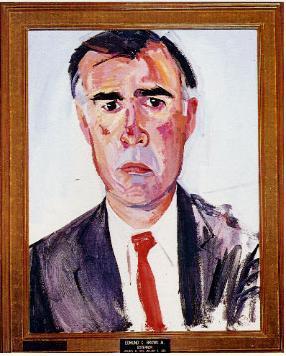steve@sfbg.com
Last week’s two-day Share conference in San Francisco came at an auspicious moment for companies that define themselves as part of the new “sharing economy,” which ranges from peer-to-peer services and products brokered online to various cooperative ventures designed to minimize resource consumption.
Most of these growing companies are part of San Francisco’s technology industry, using web-based interfaces to conduct their economic transactions. And some have been making local enemies and headlines recently by disrupting key aspects of urban life, from Airbnb impacting the housing and hotel markets to Lyft and Uber upending the taxi industry.
In fact, the biggest battle brewing at City Hall these days is over widely watched legislation by Board of Supervisors President David Chiu to regulate and legalize the short-term rentals facilitated by Airbnb and similar companies. And state agencies based in San Francisco are now working on regulations that would affect Lyft and its ilk.
So we decided to listen in as disciples of the sharing economy talked among themselves about the challenges and opportunities facing what they call the “new economy,” one that is at an important crossroads that will determine whether the interests of communities or capital guide its evolution.
CHIU DECLARES WAR
When Chiu took the stage at the Share conference, he was joining a sharing economy community that, he said he would probably be a part of today if he hadn’t gone into public service, citing his own experience with tech startups before running for supervisor.
“I believe we are becoming the capital of the sharing economy,” Chiu said, citing examples of San Francisco’s “ethos of sharing” that include the Summer of Love, Burning Man, and the fact that “we are a community that wants to foster trust among strangers to build what I think is one of the most amazing cities in the entire world. But we’re also a city that is expensive. The rent is too damn high.”
Chiu spoke proudly of San Francisco’s environmentalism and his own legislative contributions to that legacy. And he said “we are a city of innovation,” lauding the technology industry. “We understand that keeping up with the Joneses may not be the way to go,” he said. “In fact, sharing with the Joneses, I think, is the better path.”
In Chiu’s formulation, the sharing economy is the synthesis of all of these values and goals. By using computers and smartphones to facilitate the sharing of goods and services, we use less stuff and consume fewer resources, in the process opening up economic opportunities for more people.
He sounded like the most enthusiastic of sharing economy true believers, but with a couple of caveats, acknowledging how those “pesky taxes” on most of these economic transactions go unpaid, and how Airbnb and similar companies have removed apartments from the housing market for local residents.
“Shareable housing has both helped and exacerbated our housing crisis,” Chiu said, describing how he spent more than a year working on legislation that would regulate and legalize short-term housing rentals in San Francisco, where they are now considered illegal “hotel conversions” (see “Into thin air,” 8/6/13, and dozens of other Guardian stories and blog posts on the issue).
Chiu’s legislation would require Airbnb hosts to register with the city, rent out only their primary residence, and occupy that space for at least 275 days per year (which Chiu has said limits Airbnb hosts to just 90 rental nights per year, although critics dispute that interpretation).
“I thought this was a reasonable solution, but two weeks later there was a major press conference attacking it,” Chiu told Share attendees, referring to the coalition of landlord, neighborhood, labor, and affordable housing groups that have come out against the legislation, calling it a blanket rezoning of residential property around the city, pledging an initiative campaign challenging it.
“In part, this is politics. I’m in the midst of a race for the state Assembly this year, my opponent has supporters who have been protesting the Twitter headquarters, throwing rocks at Google commuter shuttles, vomiting on Yahoo buses, referring to tech workers as not real San Franciscans,” Chiu said.
Then Chiu ramped up his rhetoric, equating progressive concerns about the tax breaks and special treatment that Chiu, Mayor Ed Lee, and others have extended to tech companies in San Francisco with a war on the sharing economy and the forced deportation of its workers.
“They are calling for war on you, even though they don’t realize that what you are doing is helping to make sure we’re addressing our income inequality, we’re empowering everyday people by building community and using technology,” Chiu said. “All of you need to get involved in the political debate. You’re busy trying to change the world, but status quo interests are actively trying to ship you to Menlo Park, Oakland, and San Jose.”
In the end, Chiu did urge those starting up companies to “think early about how your paradigm meshes with existing laws and regulations,” but that tepid call for civic responsibility and good corporate citizenship did little to dull his feeding of techie exceptionalism, fearmongering, or appeals to vaguely libertarian values.
AIRBNB’S BOOSTERS
The pep rally atmosphere of the session got pumped up even more by Airbnb’s Douglas Atkin and venture capitalist Ron Conway, both of whom had nothing but glowing praise for the burgeoning industry and its customers, offering none of the caveats put forth by Chiu or the speaker who followed him, White House staffer Greg Nelson, who talked about the challenging access, equity, and regulatory issues facing the industry.
“We at Airbnb and PEERS think the sharing economy is a jolly good thing,” Atkin said in a charming British accent, presenting the sharing economy as an unstoppable and uniformly positive force that is replacing “the old economy, the last economy.”
As an advertising executive in that old economy, “I was the devil,” Atkin said. Now playing the role of savior, he spoke with an evangelical flair as he flashed Airbnb slides and videos, telling the crowd “there’s been a decentralization of wealth, control, and power” because “you can’t do this new economy without creating community.”
It was easy to forget that Atkin represents a company that Wall Street analysts have valued at $10 billion, despite having a business model that is illegal in many cities, causing some hosts to be evicted and others to evict their tenants, while the company and its investors move quickly to cash out with an initial public stock offering.
Among those who would profit handsomely from that IPO is Conway, a billionaire who already got far richer late last year from being “an early investor in Twitter,” as he described himself to the crowd after being introduced as someone who “has really led the way of connecting the tech industry to the public sector.”
Indeed, Conway spoke proudly of funding the politicians who pushed the package of tax breaks for Twitter and other technology companies that followed it into the mid-Market area, most notably Mayor Ed Lee, the biggest beneficiary of Conway’s largesse among San Francisco politicians.
Conway speaks the language of the technology sector that he’s been sponsoring with angel investments since the early days of the last technology boom, making seemingly common sense appeals that hide his conservative ideology, just as he switched his political party registration from Republican to decline-to-state when he became active in San Francisco politics (see “The Plutocrat,” 11/27/12).
But for the careful listener familiar with San Francisco political history, there were some intriguing revelations in his address that were probably lost on the average techie in attendance that morning.
For example, Conway talked about his role following up his advocacy for the Twitter tax break with behind-the-scenes work helping to craft the business tax reform measure in 2012 — which the Controller’s Office analysis found just happened to give the technology companies that Conway was invested in a substantial tax cut.
“Now all the companies enjoy this,” Conway said in reference to Twitter’s tax break, “because Prop. B was passed a year and half ago.”
He also then admitted that Airbnb owes its phenomenal growth to the widespread economic desperation triggered by the financial collapse of 2008 and an economic recovery that still hasn’t reached the average citizen struggling to cover their housing costs.
“Airbnb, for example, would not be here today if there wasn’t an economic crisis and a recession in 2008 in New York, where people had to decide to rent out a room in their house or I get foreclosed on my mortgage. It was that basic. Airbnb wouldn’t be here today if people all over New York didn’t save their mortgages and start using this product. And then by word of mouth it spread around the world because it is so convenient and so practical,” Conway said.
Conway is conservative on financial issues, but more moderate on social issues, and he talked about his advocacy work on gun control and immigration reform. Yet even on those issues, where it is almost exclusively Republicans who are blocking the changes Conway says he wants, he turns the gridlock into an anti-government argument.
“We need term limits in Congress,” the former Republican said, citing a standard conservative trope that got a big applause from the Share conference crowd.
Finally, he elevated the current struggles in San Francisco over the sharing economy into key battles that will shape the future of the new economy.
“This [Airbnb] legislation that David Chiu has proposed, which in the next few months will go to the Board of Supervisors is crucial legislation the whole country will watch,” Conway said, calling for everyone in the crowd to get involved and lobby their supervisors. “David Chiu needs help. This would not pass if it went to a vote today, it wouldn’t come close to passing. So we have to change this. We want to do on the local level what we have to do on the national level: Organize and conquer!”
ACCESS AND EQUITY
After Conway came an intriguing panel discussion about equity and environmental issues with Nikki Silvestri of Green for All, Vien Truong with the Greenlining Institute, and Adam Werbach, the former Sierra Club executive director who started the stuff-sharing company Yertle.
It was moderated by GreenBiz.com editor Joel Makower, who cited information from the previous day’s sessions about how it’s mostly middle class white people who use the sharing economy. “The reality is it’s not that inclusive,” he said, and all his guests agreed and talked about the need to broaden its benefits.
“How do you marry the economy with people?” Truong said as she discussed that challenge. And it’s an urgent need, as Werbach said while answering a question about how the sharing economy could help bring about a new kind of environmentalism aimed at producing and consuming less stuff.
“What’s wrong with the old environmentalism is we’re not achieving our mission. Climate change is what’s wrong with the old environmentalism,” he said.
Werbach cited the goal of replacing about a quarter of the things we now buy with shared goods, even though Amazon and other companies have made it easier than ever to have new products shipped around the world: “It is cheaper, faster, and easier to get something new than to get something used from right next door.”
But Silvestri said the limited participation in the sharing economy makes it difficult to see it as the solution yet, calling for the sharing economy to address access and equity issues, something that marginalized groups would respond to if it was based on true values of sharing.
“Coming from my own background, African Americans had to share because white people wasn’t giving us nothing,” she said. By that same measure, she also said that low-income people feel wary of being taken advantage of by sharing companies and customers: “When you’re in survival mode, you’re wary of people taking from you.”
That’s one reason why Silvestri said that black communities are slower to adopt sharing with strangers, whether it be their homes or cars, something that could be overcome with more personalized outreach: “If I look you in the eye, you might not come take my shit.”
She said that for all the talk at the conference about “community,” the community of strangers that makes up the sharing economy isn’t a true community, something that needs to change to realize the lofty goals that many espouse.
“The sharing economy is new enough that if we figure out this problem early then all of us can actually participate,” Silvestri said.
Werbach agreed, saying the sharing economy has great potential, but only if it makes the right moves now. “This is the beginning of a movement, but the people aren’t here yet,” he said. “We’re at the very beginning of this story.”
He defines the struggle of the moment as one between human and economic values, hoping the sharing economy’s customers will determine its values: “There is an interesting wild west movement now. We need people to do the recruiting so Wall Street doesn’t do the recruiting.”
STRAIGHT TALK
The closing plenary session at Share illustrated the divergent attitudes and goals that mark the sharing economy, in which some members feel a collective responsibility to meet important societal goals, while others seem more interested in just making money and mouthing the rhetoric of sharing.
New York University economics professor Arun Sandararajan, who runs the Collaborative Economy Project that studies and promotes the sharing economy, said it has the potential to develop in ways that will either exacerbate or reduce the income inequality that has become such a growing public policy concern.
Sandararajan expressed hopes that the sharing economy could increase the economic growth rate and lower the wealth gap by broadening access to capital and opportunities for entrepreneurship. But he also argued that the sharing economy has the potential to change the terms of the debate by giving more people access to goods and services than their incomes might otherwise allow.
“We have to go beyond measuring inequality in terms of income and wealth,” he said, offering a conception likely to appeal to the wealthy, but probably not those struggling to get by, even if they were able to get more hand-me-downs through Yerdle or odd jobs through TaskRabbit.
Others on the panel illustrated the dichotomy between do-gooders and profit-seekers more clearly, showing how broadly those in the sharing economy are trying to define it these days.
Jose Quinonez runs the nonprofit Mission Asset Fund, a nonprofit on Valencia Street that assists with peer-to-peer microlending, an amazing program that seemed to have little in common with the investor-backed companies that dominated the agenda. “I didn’t know I was part of the sharing economy until today,” he told the crowd.
In an earlier session, Quinonez called out the self-congratulatory tone by some boosters. “As we talk about the word inclusive it’s very easy to forget the people not invited to the party…We have to make sure we’re not making an exclusive sharing economy.”
Next came Denise Cheng, an academic who has been studying the sharing economy for the MIT Center for Civic Media, and she had perhaps the most poignant and insightful answer to the question the conference posed about what will best catalyze the sharing economy.
“Straight talk will catalyze the sharing economy,” Cheng said.
She discussed how the broad label of the sharing economy gets claimed by everyone from small idealists who truly want to promote the idea of sharing to self-interested corporations who use the label for political cover and really mean “renting.”
“When we say sharing economy, we actually mean a lot of things,” she said. “Companies that adopt the sharing economy label are not necessarily adopting the values of the sharing economy.”
Compounding that deception is the fact that companies like Lyft, Uber, and Airbnb are profiting from business models that are often illegal on the local level, but doing little to help drivers or hosts who get in trouble with local authorities: “When someone has to answer on the local level, it’s the providers who are on the front line.”
There was a very different tone and message that came from the subsequent guests to join the panel, who shamelessly promoted their companies and didn’t seem to take heed of Cheng’s call for straight talk.
“Sharing cars is how we can catalyze the sharing economy,” Jessica Scorpio, wearing a T-shirt of the car-sharing company she helped found, Getaround. She called car-sharing “a gateway drug to the sharing economy,” noting that car-sharing customers often go on to use other sharing economy products and services.
“Sharing cars is transforming the fundamentals of our transportation system,” Scorpio said, claiming that each shared car takes up to 32 cars off the road, a figure that doesn’t square with the body of peer-reviewed research on the subject, which places the actual number at nine to 13 cars.
Hyperbole and exaggeration are common among the biggest boosters of sharing economy companies, as are the sins of omission and misdirection — all of which are perhaps what prompted Chang’s “straight talk” prescription.
Sunil Paul, co-founder and CEO of the ridesharing company Sidecar, gave a long and detailed presentation on the supposedly ambiguous definition of “commercial transactions,” calling for what he called a “safe harbor” for sharing activities, without once mentioning the word that he was actually talking about and dancing around: taxes.
“There are certain activities that should be beyond the commercial reach of government,” Paul said, describing his clients who drive customers around the city like taxi drivers less than full time. “We need a safe harbor for sharing that protects these activities from being considered commercial.”
Paul said that Sidecar and other sharing economy companies have “blurred the line between what is personal and what is commercial,” comparing the activities his company facilitates to carpooling and arguing that people should be able to cover the annual cost of driving, say around $10,000, without it being considered a commercial activity (i.e. a taxable transaction).
“As long as you don’t make a profit from it, it’s not a commercial transaction,” Paul said, redefining the very concept of commercial.
And remember, this is a company that is already having a profound impact on the regulated taxi industry — of which Sandararajan said, “I think the taxi service as we know it will largely cease to exist in a few years” — just as other sharing economy companies steal market share from other industries, as Airbnb is doing to the hotel industry, also while avoiding taxes on those transactions.
FROM TALK TO ACTION
“One of the things we like to do in the sharing economy is talk about the sharing economy — a lot!” Jesse Biroscak, an Airbnb host and founder of BayShare, said during a session at Share entitled “Shareable Cities: From Concept to Action.”
It was the first thing I heard upon arriving at the conference, but I already knew it was true after covering this movement over the last couple years, a point that was emphasized strongly by the excited evangelism that I heard again and again over the next 24 hours.
But for all the talk that those in the so-called sharing economy do about the sharing economy, there is often a deliberate vagueness to it that tries to mask its many contradictions and paradoxes.
Its biggest proponents are anxious to go big — defined by a strange mix of idealism (for environmentalism, libertarianism, economic and social equity, and an odd and often contradictory assortment of other goals) and the desire to cash in on the new gold rush — before the opportunities slip away (thanks to competitors, government regulators, or an economic downturn).
“I’m tired of talking about it, I want to do things,” said Biroscak, a regular Airbnb host from San Francisco, without ever really defining the things he wants to do.
BayShare also seems to have a vagueness of purpose, defining itself on its slick website as “an organization whose mission is to make the Bay Area the best place on the planet for sharing. As this movement grows, BayShare will explore how city stakeholders and the sharing community can work together to help the Sharing Economy flourish in the Bay Area to benefit the city, businesses, and communities. The organization looks to be a resource for the Mayor’s Working Group on the Sharing Economy.”
But that working group, which Mayor Ed Lee announced when Treasurer Jose Cisneros was holding hearings two years ago to determine whether Airbnb and other companies should pay the city’s transient occupancy tax, never actually convened. It was simply a stall tactic that evaporated after Cisneros ruled that the tax was indeed owed.
Still, BayShare lists many of the biggest sharing economy companies among its “members,” including Airbnb, RelayRides, Lyft, Yerdle, Vayable, City Car Share, Suppershare, and Get My Boat. Biroscak described the advocacy work that he and BayShare do, work that he urged all of the attendees to get involved with, so that public agencies understand and support this growing economic sector.
“This is called lobbying, and that’s okay. Lobbying is not a dirty word,” Biroscak told the crowd.
Lobbying may not be a dirty word, but it is a regulated activity in San Francisco and other cities, and neither Biroscak nor BayShare are registered lobbyists with the San Francisco Ethics Commission, which they should be if they are indeed lobbying.
Biroscak even boasted of a partnership with the San Francisco Department of Emergency Management that BayShare secured last year on behalf of its member companies to provide their services to local residents in the event of an emergency.
“The sharing economy was born here, and partnering with BayShare, we are committed to ensuring that San Francisco supports this emerging sector’s success and nurturing even greater civic involvement,” Mayor Ed Lee said last June in a press release announcing the partnership, while Chiu said, “I’m confident that BayShare will improve the communication between this emerging sector and local government as ‘collaborative consumption’ evolves and grows in San Francisco.”
But when we reached Biroscak by phone, he said that BayShare doesn’t really have any agreements with the city, and that it doesn’t actually represent its “member” companies or get any money from them. And he said BayShare “definitely does not consider itself a lobbying organization,” instead defining it more vaguely as “a convener and facilitator.”
But as a self-styled spokesperson for the movement — “I try to speak for the San Francisco sharing economy as an industry,” he said at the conference — Biroscak issued a call to action to a crowd that mostly seemed to be puttering on their electronic devices and only half paying attention: “We need to stand up for what we want, but we want to do it in a coordinated way.”
Joe Fitzgerald Rodriguez contributed to this report.




